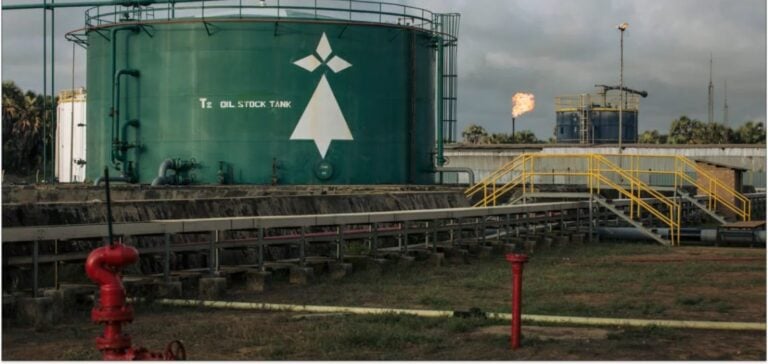Oil production in the Congo could reach a new milestone thanks to the ambition displayed by Perenco. Currently producing 80,000 barrels per day (bpd), the company aims to significantly increase output to 100,000 bpd by the end of 2025. This growth is based on a clear strategy: maximizing the potential of the offshore Émeraude field.
A drilling platform dedicated to the Émeraude field
The plan unveiled by Armel Simondin, Perenco’s General Manager, highlights the deployment of a drilling platform fully tailored to this offshore field. This infrastructure will enable a new drilling campaign, enhancing hydrocarbon recovery rates. Perenco estimates Émeraude’s reserves at approximately 5 billion barrels, a strategic resource for both the company and the country.
The challenges posed by the site’s complex geology are significant. However, they also present an opportunity to test advanced techniques necessary to maximize resources from a mature oil field. This technical approach aligns with a long-term vision of optimal resource management.
A strategy extended to other sites
Perenco’s ambition is not limited to Émeraude. Other offshore fields, such as Likouala, are targeted for similar optimization projects. These initiatives aim to extend infrastructure lifespan while increasing production.
In a competitive market, this policy strengthens Perenco’s position in the mature offshore segment. It also illustrates a broader industry trend toward enhancing the performance of existing fields rather than discovering new resources.
A favorable national context
This momentum aligns with Congo’s national objectives. The government aims to double national oil production to 500,000 bpd by 2030, up from approximately 260,000 currently. To achieve this goal, the country relies on private initiatives like those of Perenco, as well as a policy of granting new exploration licenses.
Improved performance in mature fields and the arrival of new investors are expected to jointly strengthen national production. These efforts, supported by partnerships between public and private actors, should also consolidate Congo’s strategic position in the African oil market.






















